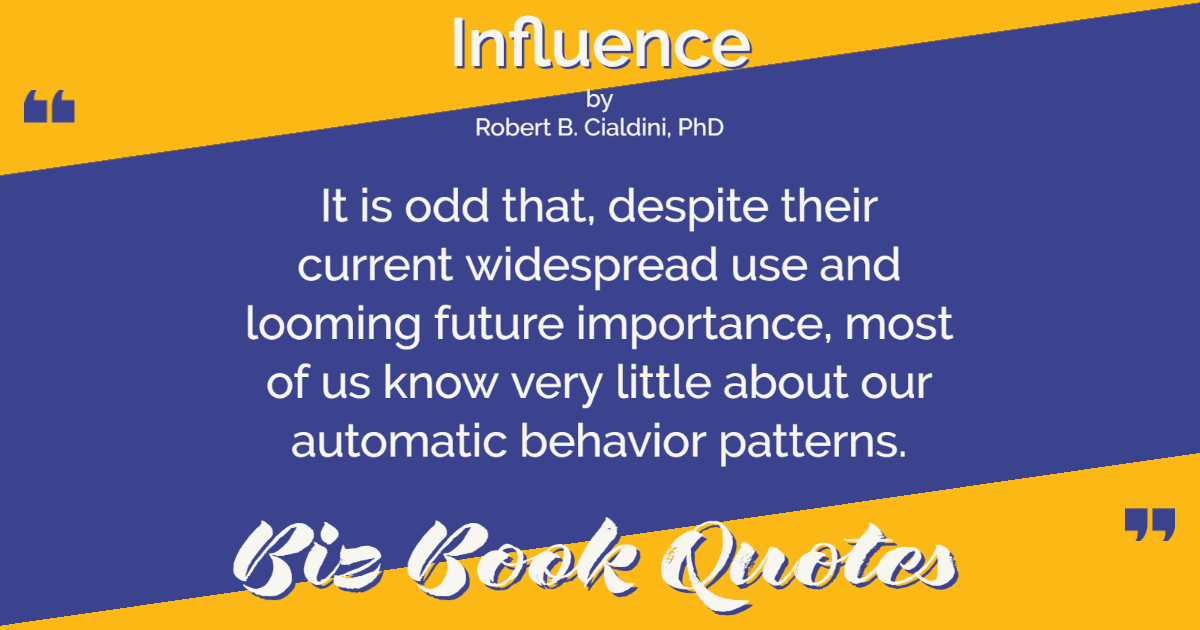 |
It is odd that, despite their current widespread use and looming future importance, most of us know very little about our automatic behavior patterns.
|
11 |
 |
…when uncertainty reigns, we are most likely to accept the actions of others – because those actions reduce our uncertainty about what is correct behavior there.
|
143 |
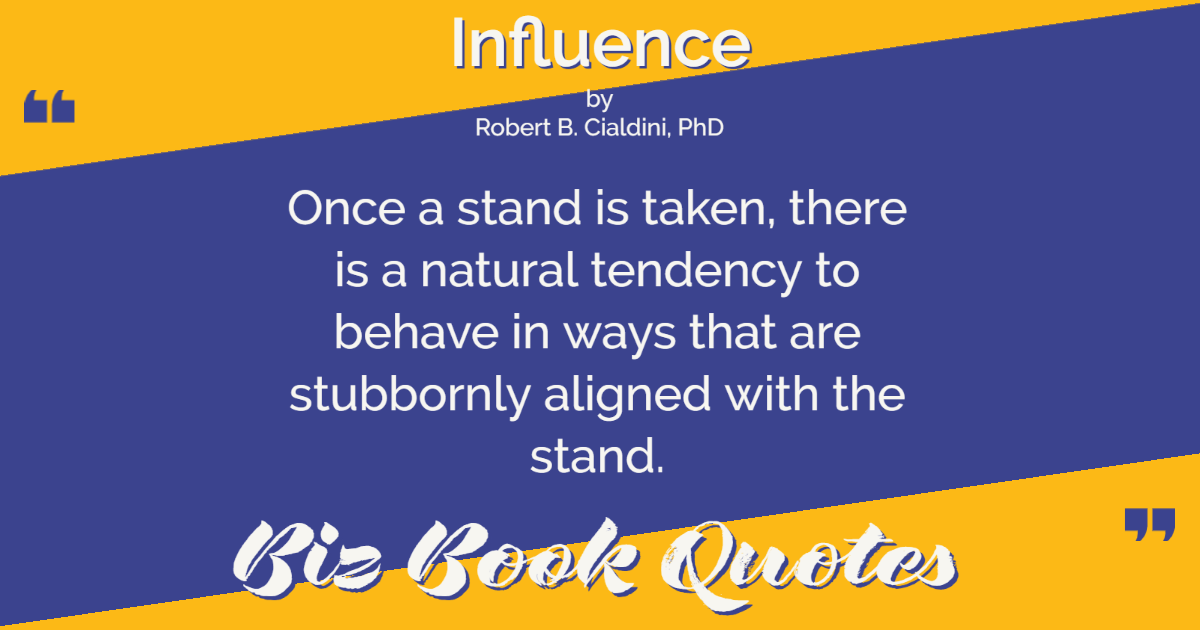 |
Once a stand is taken, there is a natural tendency to behave in ways that are stubbornly aligned with the stand.
|
303 |
 |
Observers trying to decide what people are like look closely at their actions. People also use this evidence – their own behavior – to decide what they are like…
|
314 |
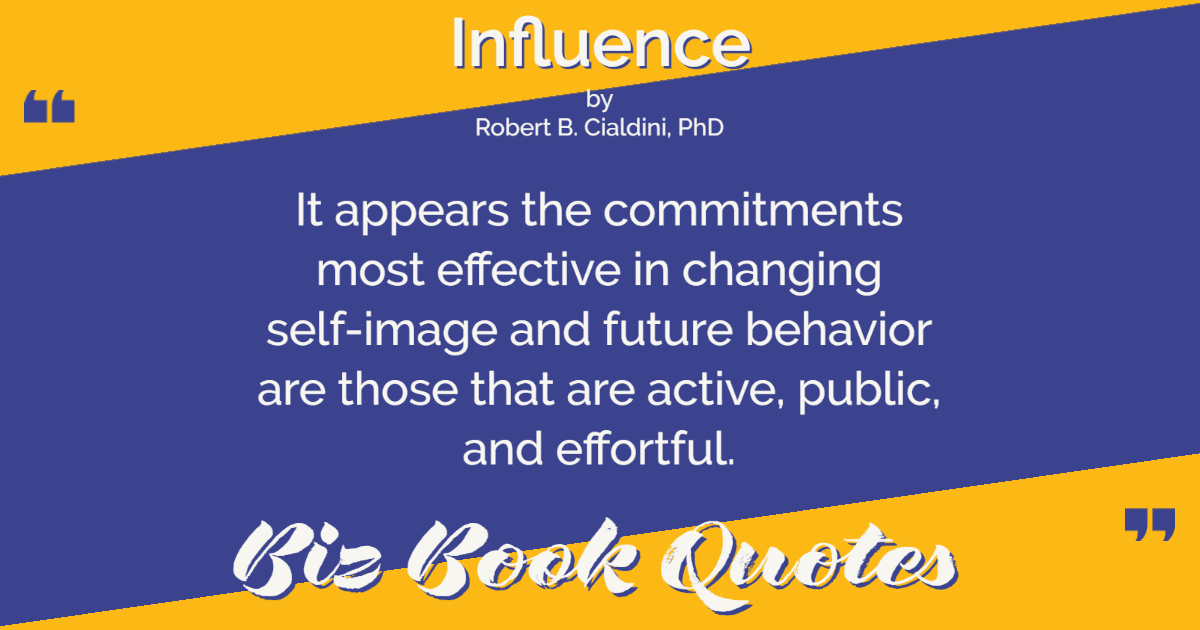 |
It appears the commitments most effective in changing self-image and future behavior are those that are active, public, and effortful.
|
335 |
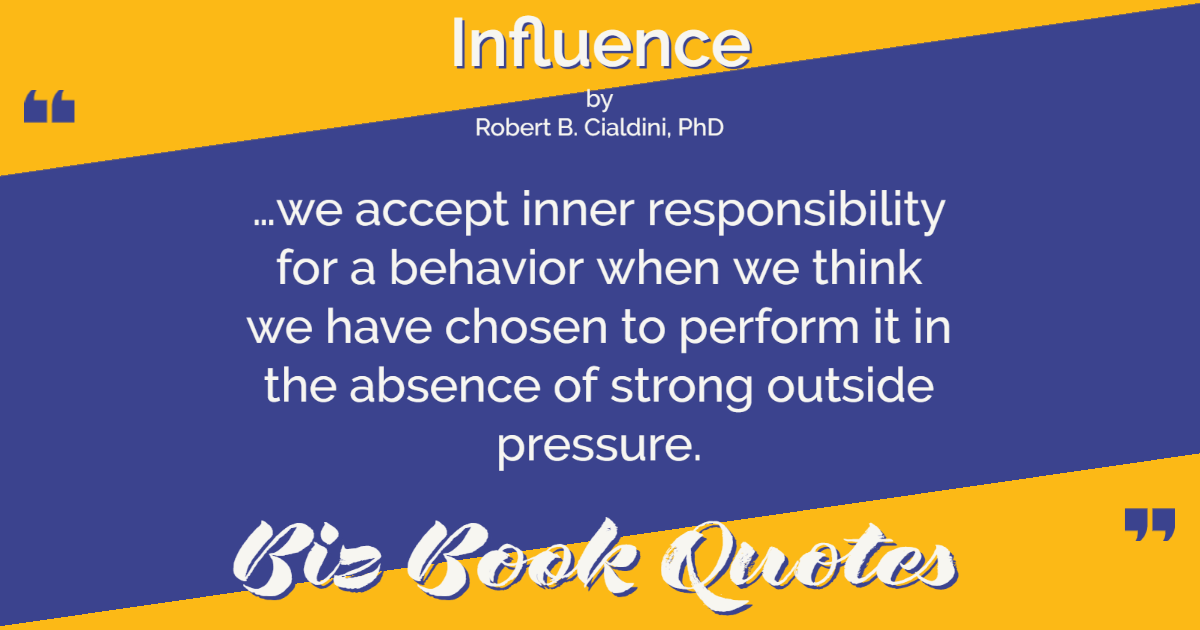 |
…we accept inner responsibility for a behavior when we think we have chosen to perform it in the absence of strong outside pressure.
|
336 |
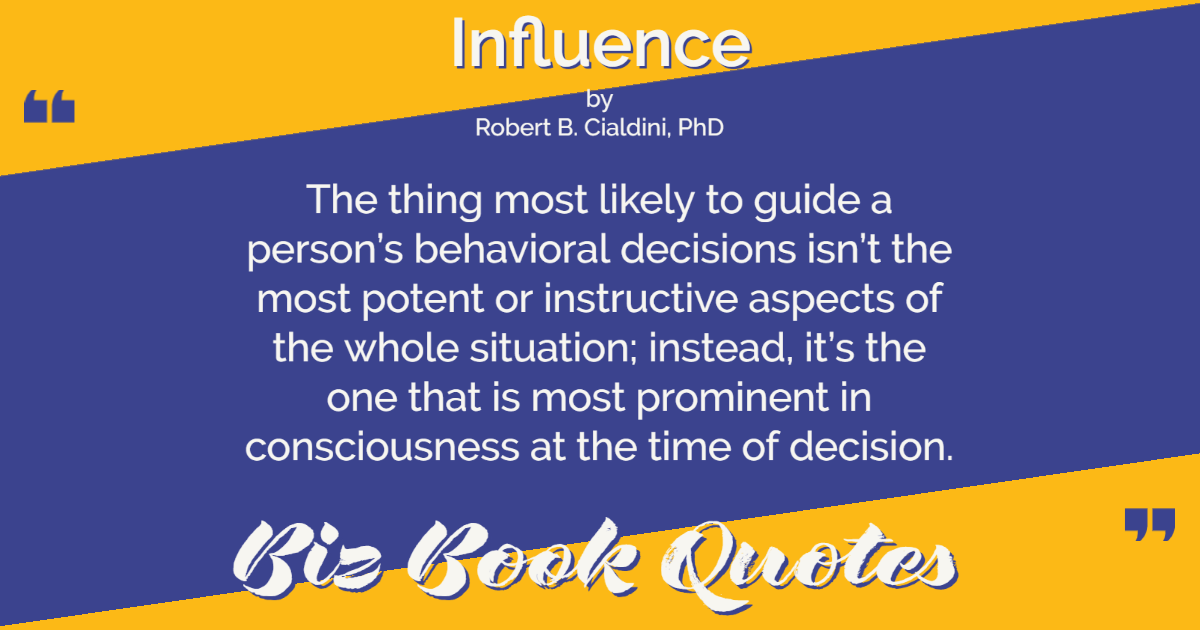 |
The thing most likely to guide a person’s behavioral decisions isn’t the most potent or instructive aspects of the whole situation; instead, it’s the one that is most prominent in consciousness at the time of decision.
|
375 |
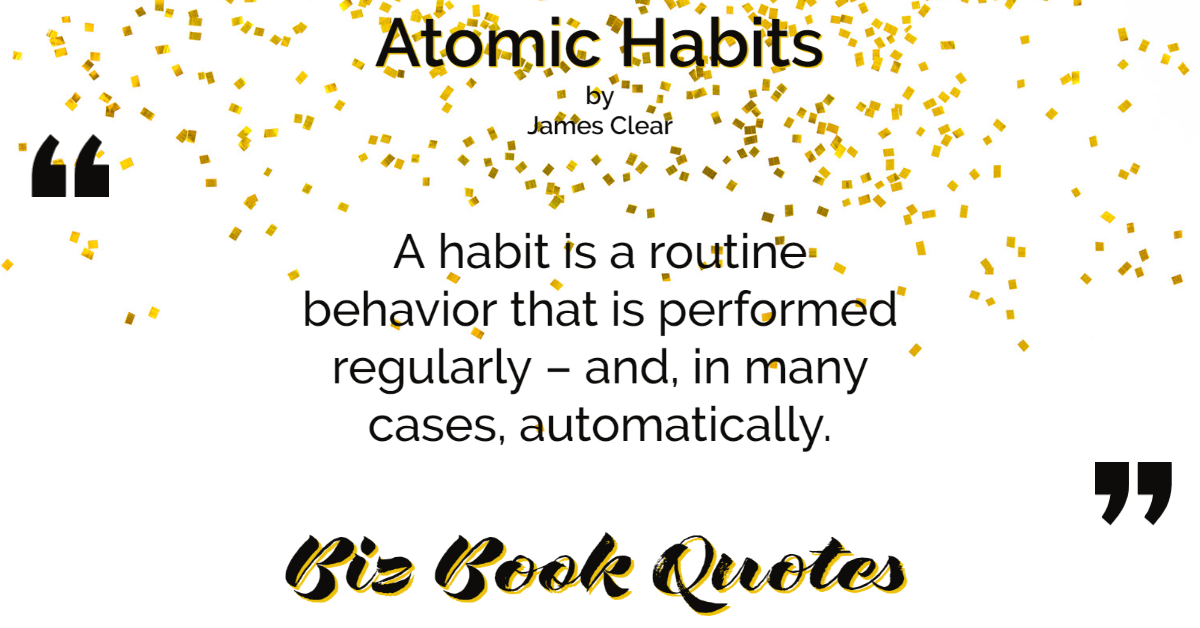 |
A habit is a routine behavior that is performed regularly – and, in many cases, automatically.
|
6 |
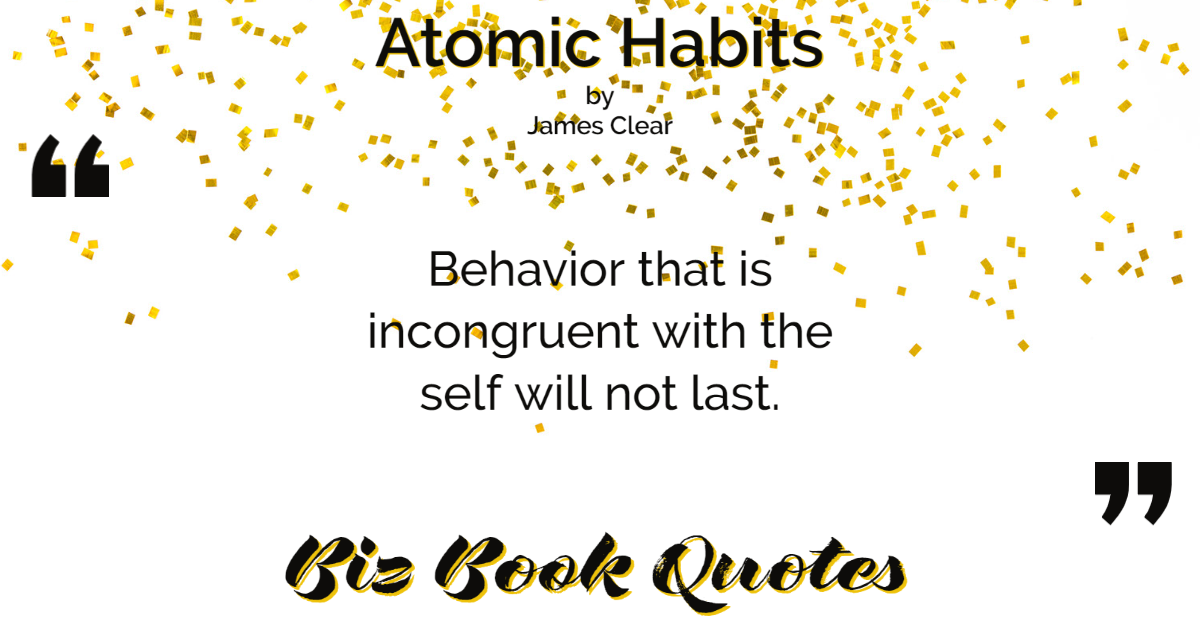 |
Behavior that is incongruent with the self will not last.
|
32 |
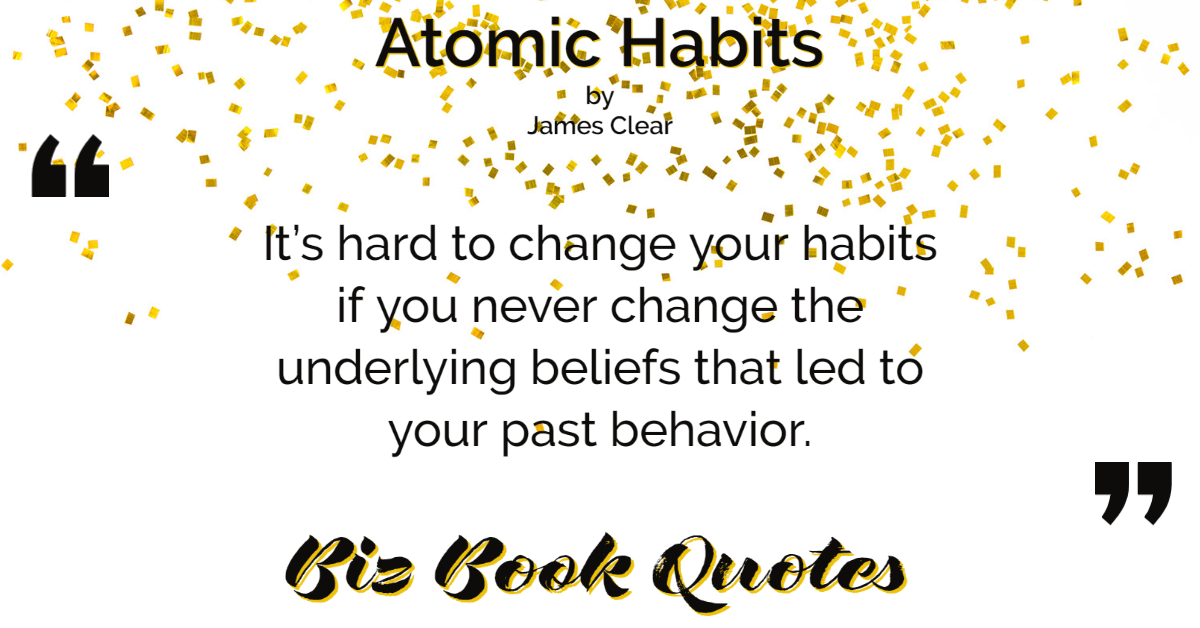 |
It’s hard to change your habits if you never change the underlying beliefs that led to your past behavior.
|
33 |